The Seven Sacraments of the Catholic Church
Since the beginning of Christianity, the Church as community has recognized and celebrated in a public way those important moments throughout our lives when God is present to us, individually and communally. In the liturgical reforms of Vatican II, we are called to renew our understanding and participation in these defining or peak moments of our faith journey that are called the sacraments, the public rituals used to mark these occasions in which God graces us. A noted sacramental theologian has titled these seven public rituals as "doors to the sacred."
The Church has singled out seven (7) important occasions to celebrate when God and his people interact in a special way through not only words but also symbolic action. The symbols, referred to often as “outward signs,” and their related actions help us to express those deep divine and human realities of life, love, death and joy in our life. These symbolic actions we know and celebrate publicly as: Baptism, Confirmation and Eucharist (the sacraments of initiation); Penance/Reconciliation and Anointing (the sacraments of healing); Marriage and Orders/Ordination (the sacraments of commitment).
Sacraments of Christian Initiation
Christian initiation is accomplished by means of the sacraments which establish the foundations of Christian life. The faithful born anew by Baptism are strengthened by Confirmation and are then nourished by the Eucharist. Read more about the Sacraments of Christian Initiation.

The Sacrament of Baptism
Baptism (from the Greek word meaning to drown or immerse) marks the beginning of our life in Christ, a complete transformation of ourselves as faithful followers of Jesus, the Son of God. This sacrament recognizes our creation as images of God and welcomes infants and adults into the community of the faithful who profess that Jesus is Lord. In its public celebration, the community recalls its own initiation and sees again the vitality of the living and growing body of Christ in the world.
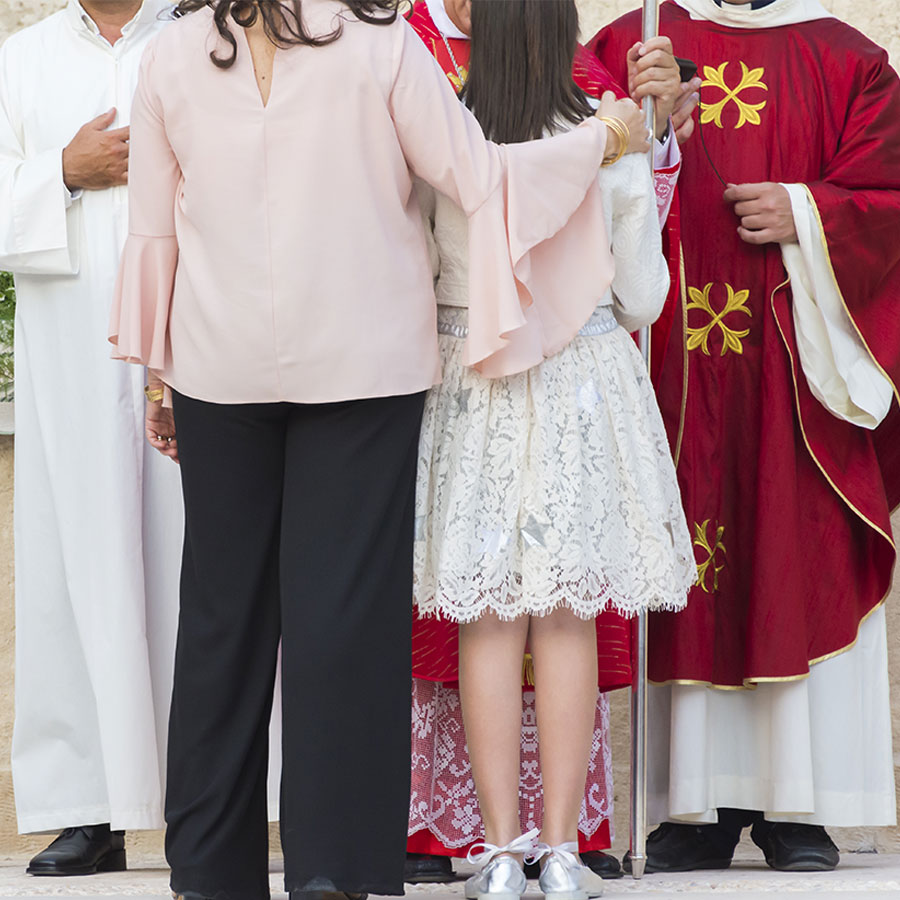
The Sacrament of Confirmation
To complete our baptism into the Lord, we call upon the Holy Spirit to strengthen our Christian commitment. It is this Spirit of Christ that nourishes us, the presence of the Trinity within each of us as we walk the journey of faith. This second step in the process of initiation reminds us of the many gifts that God has given us and talents that we are called to use as witnesses of the Gospel given to us by Jesus for the salvation of all humanity. It is the sign that truly “confirms” us as committed Christians.
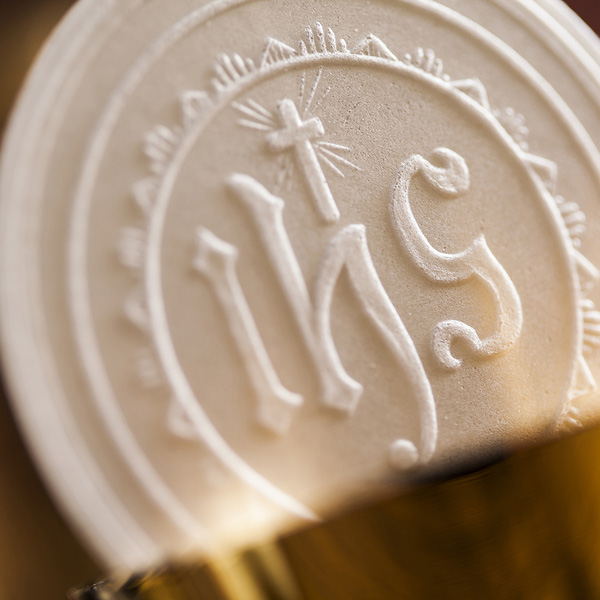
The Sacrament of the Holy Eucharist
This step in our initiation as followers of Christ enables those who receive the sacrament to participate fully as members in the Body of Christ, whether as a child or an adult. By sharing in the bread and wine, the sacred Body and Blood of Christ, this unifying food of life nourishes us as we walk the daily path of life. For those baptized as infants, this sacrament is received before Confirmation; for newly baptized adults, the ancient practice of receiving the sacrament of Eucharist after that of Confirmation is followed.
Sacraments of Healing
Christ, the physician of our soul and body, instituted these sacraments because the new life that he gives us in the sacraments of Christian initiation can be weakened and even lost because of sin. Therefore, Christ willed that his Church should continue his work of healing and salvation by means of these two sacraments. Read more about the Sacraments of Healing.

The Sacrament of Reconciliation (Confession)
Our frail human nature suffers many different types of breakdowns; some are physical in nature, but many more are breakdowns in our relationships with God and others. These breakdowns in our relationships, all of which involve a turning away from God, are called sin and require recognition of the fault and some process of restoring the relationship with whomever was wronged.
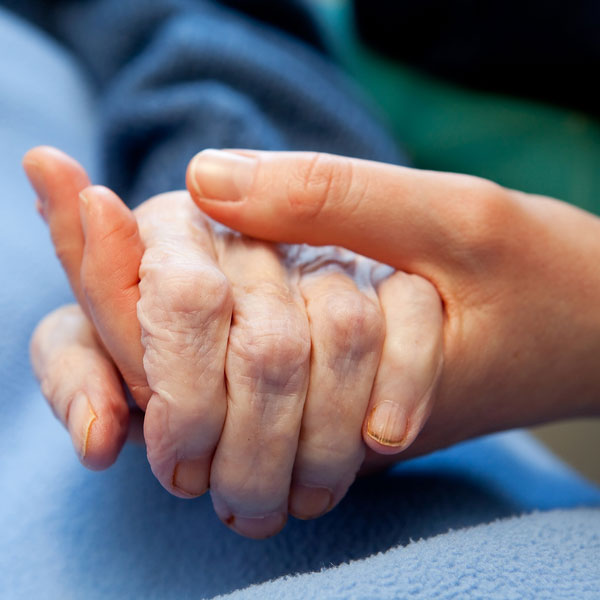
The Sacrament of Anointing of the Sick
Throughout the gospels, the sick were a primary concern of Jesus, a basis for this sacrament. In this sacrament, we ask for and experience God’s compassion for those who suffer some form of serious illness and those who are at the point of death. In the anointing and laying on of hands, God’s healing power is called upon those whose body and spirit are broken. Healing may come physically, but God will always provide spiritual strength and consolation to endure even to the point of death.
Sacraments at the Service of Communion and Mission
Two sacraments, Holy Orders and Matrimony, confer a special grace for a particular mission in the Church to serve and build up the People of God. These sacraments contribute in a special way to ecclesial communion and to the salvation of others. Read more about the Sacraments at the Service of Communion and Mission.
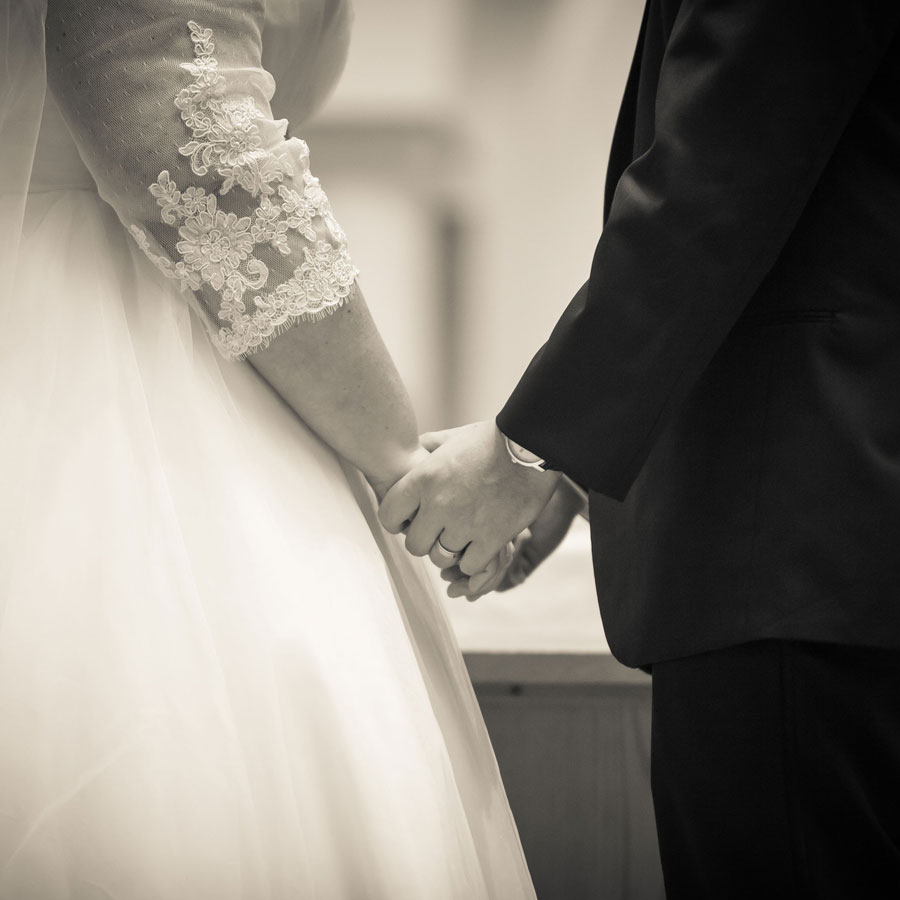
The Sacrament of Marriage (Matrimony)
This union of man and woman is seen not only as a celebration of love, but also as a vocation and in the eyes of the Church also as a sacrament of service, in somewhat the same manner as the sacrament of ordination. No longer seen as a social contract, the union is seen as a special sign of God’s presence in humanity in the creative expression of the love in the union of the couple, in times of happiness and difficulty. In this communal love, Christ’s boundless love becomes manifest in the Christian community and in society at large.
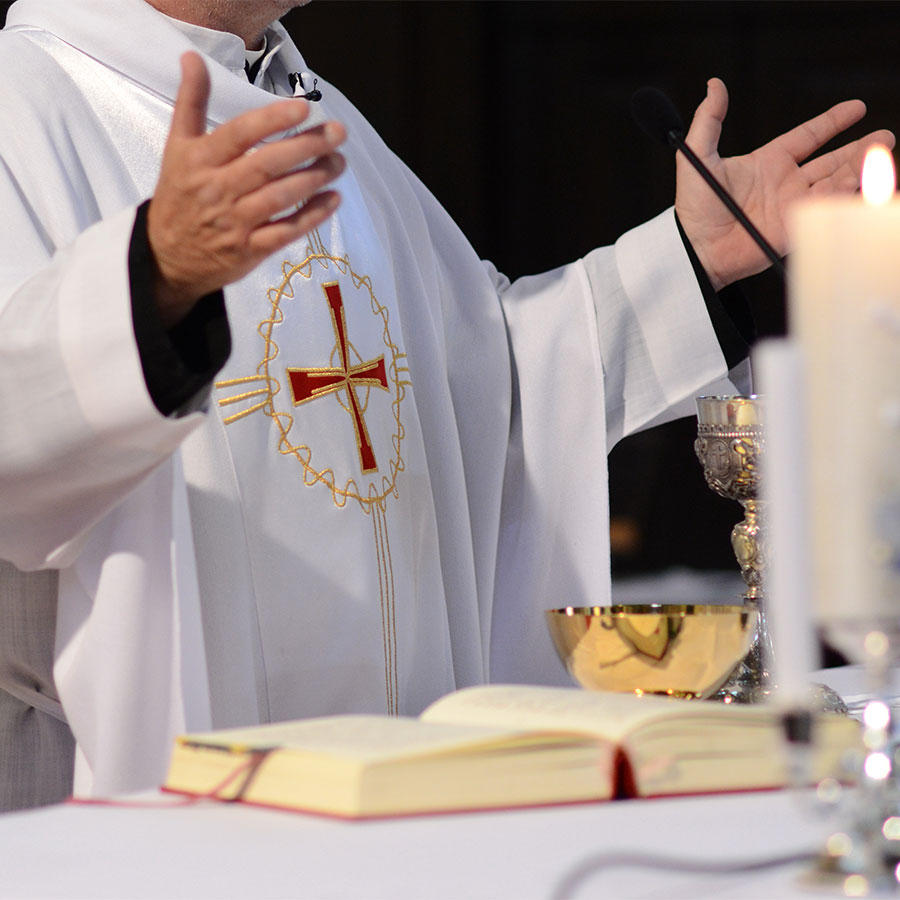
The Sacrament of Holy Orders
Ordination (or orders) is the public celebration of those who have been called to a special ministry of service to the community. In a special way, the Church, the ecclesial body of Christ, asks for God’s blessing on those who will be a special sign of Christ’s presence to all the people of God. The “orders” of those who have been called to serve are deacon, priest and bishop. Each has a distinct and different ministry to God’s people for which different rites are celebrated in this sacrament. It is a sacrament that symbolizes in a special way one’s baptismal call to serve.